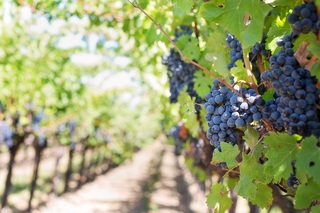
“Happy New Year!” When it comes to celebrations like New Year’s Eve, sparkling wine from the Champagne region is a completely natural part of enjoying the occasion for many of us. At the same time, however, accusations of human trafficking levelled at the Champagne giants are growing louder all the time as harvest workers are hired from abroad to pick every vine by hand, housed in intolerable accommodation and exploited. Very few talk about their situation, however – for fear it could get even worse as a result.
WORKED TO DEATH
Just how hard working in the vineyards can be is shown by the tragic deaths of no fewer than five people employed there in 2023. The workers died while doing harvesting work. The world of Champagne, the water for the rich and famous, has been shaken by increasingly serious allegations in recent years.
FAR AWAY AND A LONG DAY – FOR 40 EUROS
September is grape harvesting season, and every year, people are brought into France from third states to work in the vineyards. These male and female workers, who are smuggled in by human traffickers, come from Eastern Europe, Africa and Afghanistan. They are promised a lucrative job, but instead have to harvest the delicate grapes in the late-summer heat for at least 9 hours for 40 or 50 euros a day.
UNWORTHY ACCOMMODATION
They are housed in “tents”, constructed out of cardboard boxes, covers and plastic sheeting, or – if they get a slightly better deal – in rooms without a proper bed, crammed together, with just one toilet serving a dozen people.
HIRED WORKERS FROM SUBCONTRACTORS
For a grape to be allowed to be turned into a Champagne, it is legally prescribed that it must be harvested by hand. It is becoming more and more difficult to find people who want to do the job, says one vintner in an ARTE reportage. As a result, many of the major brands decide to use sub-contractors to provide them with staff.
MAINLY CHEAP
The big champagne brands posted record sales in 2023, but of course savings are being made where possible. Of course, there are family businesses that value harvesting their own grapes or directly employing people who pay them fairly. But there are black sheep in every industry, and in the Champagne region there seem to be many. Some large producers apparently don’t want to know exactly where their temporary workers come from, how they are accommodated and whether their working conditions are okay.

TYPICAL MUST
Human traffickers shamelessly exploit the high demand for labor and the lack of interest from winegrowers. They lure people from economically weak countries to one of the richest areas in the world with false promises. Once they get there, they don’t even get a decent place to sleep, enough food, let alone a decent wage.

PAINKILLERS TO SURVIVE THE DAY
Working in the vineyards is physically backbreaking stuff, with many of those doing it plagued by back pain, and needing to take tablets on a daily basis to get them through the day. Some immigrants also come to the region voluntarily to work during harvest season, in the hope of getting a job in the vineyards. Poverty and a lack of perspectives mean they accept shabby deals. One man says he should have received 400 euros’ pay for 10 days’ work. Unsurprisingly, a work contract is rarely issued.
TRADE UNION TRIES TO HELP
The trade union CGT has been expressing criticism of the exploitation of foreign hired harvest workers for many years. Its members regularly go up into the vineyard regions and explain to workers there what their rights are. Unfortunately, there are two problems; on the one hand, the lack of language skills amongst the workers, and on the other, the fact that many hired harvest workers don’t want to complain at all – due to fear of destroying their only chance of finding work. “In the vines, you don’t talk”, as they say, as General Secretary Sabine Duménil puts it.
Although a number of companies have been accused of human trafficking and slavery-like working conditions, little has changed overall. This is because the only ones being held to account are subcontractors at best, as opposed to the major producers.
The scandal involving the hired harvest workers doesn’t suit the shimmering world of Champagne. One often finds human trafficking and slave-like work where you would least expect them. That’s why education is important. Maybe you should drink a glass of sparkling wine from Austria at your next special occasion!
Translated by Tim Lywood
#Champagner #Weinlese #Ausbeutung #Erntehelfer #Menschenhändler #AgainstHumanTrafficking #GegenMenschenhandel #EndExploitation #EndTrafficking #HopeForTheFuture #Österreich
